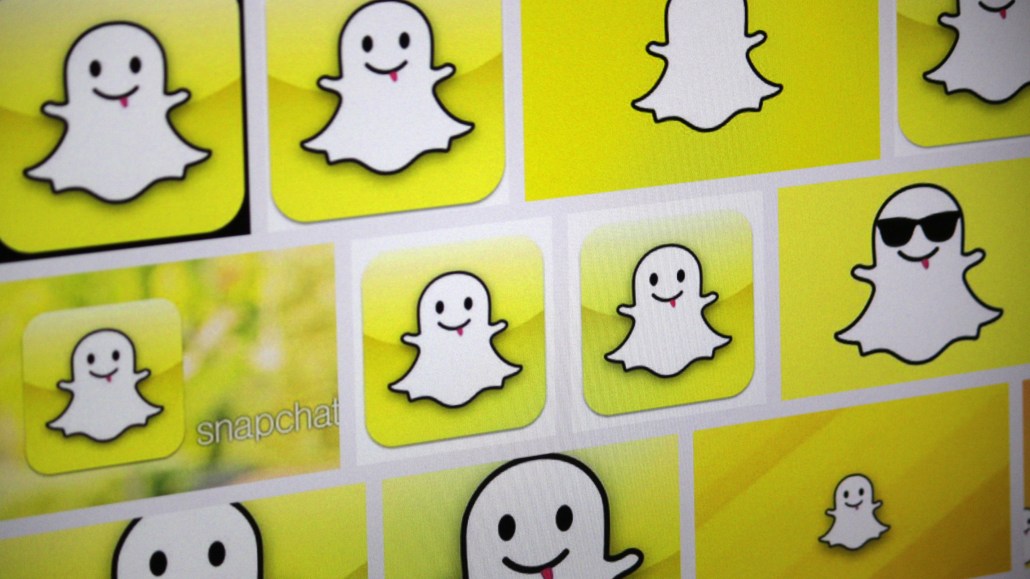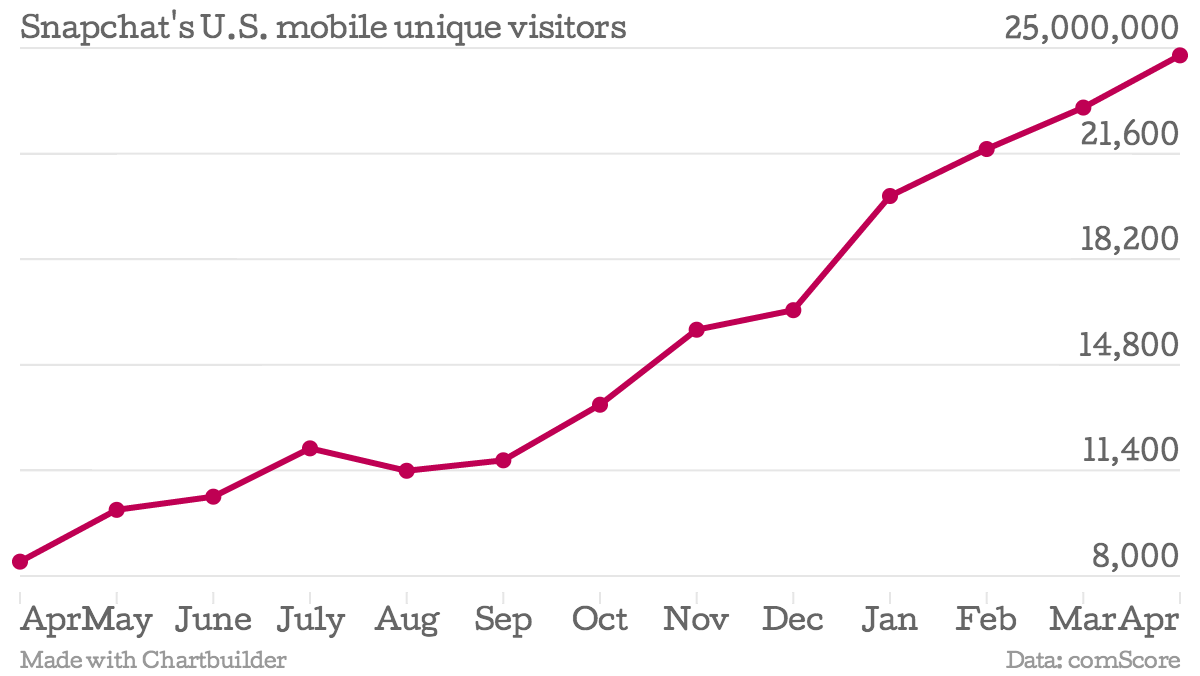
Over the last 12 months, Snapchat has consistently made headlines for everything from its association with sexting to turning down a multi-billion dollar acquisition offer from Facebook, to the founder’s model girlfriend becoming a contestant on “The Bachelor.”
But all of those tongue-wagging headlines are simple symptoms of the app’s meteoric rise in popularity: Snapchat’s number of unique mobile users has about tripled to nearly 25 million over the past year.
Which is exactly why some of the most notable platforms, publishers and digital media investors are looking to duplicate Snapchat’s success with nearly identical messaging apps — even though, security risks aside, as of yet, there is no viable business model for the service.
Earlier this week, Yahoo acquired the team that built Blink, an app that, like Snapchat, destroys messages after they’re sent. Blink will be shut down and almost certainly replaced with a similar app under the Yahoo banner, which is what the platform did with news app Summly.
Entrepreneur Mark Cuban recently called upon app-development firm Mention Mobile to create his own ephemeral-messaging app called Cyber Dust. And Facebook continues to try to add features that will increase its users’ ability to message privately.
If imitation is the highest form of flattery, Snapchat must be tickled pink.
But why the popular app has drawn so many deep-pocketed admirers is still somewhat of a mystery. Not only have companies failed to successfully replicate Snapchat’s popularity, they’re entering an arena — ephemeral messaging — that has yet to provide a viable business model.
“Snapchat is very cool, but I doubt it will last very long as an independent company,” Fahad Khan, CEO at marketing technology firm One Public, told Digiday. “I don’t see how Snapchat will financially be viable on its own.”
Facebook, for instance, unsuccessfully tried to steal Snapchat’s thunder with Poke, a standalone app that allowed users to send messages that would be deleted after a certain period of time. Poke was officially shuttered last week after languishing in the app store for nearly a year. (Facebook also tried to acquire Snapchat last fall only to have its offer rebuffed.)
Facebook’s interest in such ephemeral-messaging features mirrors its newfound emphasis on de-bundling its various services into standalone apps and defending against newer, hipper platforms eating away at its user base. For Yahoo and Cyber Dust, however, how these apps will produce bottom-line results is less clear. (Neither Yahoo nor Mention Mobile, the company that created Cyber Dust, returned requests for comment.)
Zappos founder Tony Hsieh has questioned whether Snapchat could become a profitable business in a recent interview with Playboy. “I just wonder how they pay their bills and what their business model is,” he said. “I’m not saying they don’t have one. I just can’t imagine what it is.”
One Public’s Khan posited that Snapchat may not have a future as a consumer-facing product because its core feature — self-deleting messages — can easily be replicated by other companies. But he did say that Snapchat could be useful as a premium service for corporations sending sensitive information.
“The enterprise application of the concept will be more powerful,” he said. “In the enterprise context, ephemeral messaging will be an add-on or subscription service for off-the-record email. I don’t see [Snapchat] being able to make ton of money through ads.”
Jason Stein, president at social media agency Laundry Service, said Snapchat could also monetize with in-app purchases. That’s certainly been a successful strategy for mobile games, but Stein, too, believes that Snapchat and other standalone apps like are at risk of being co-opted by larger platforms.
“How well all of these apps can monetize is not entirely clear just yet, but it’ll be similar to other messaging apps. They can charge for the app, stickers and games, and distribution programs — as well as make deals directly with data providers,” Stein said. “The question remains: Are these standalone apps or features within bigger apps? Probably both.”
Image via 360b, Shutterstock
More in Media

In Graphic Detail: The scale of the challenge facing publishers, politicians eager to damage Google’s adland dominance
Last year was a blowout ad revenue year for Google, despite challenges from several quarters.

Why Walmart is basically a tech company now
The retail giant joined the Nasdaq exchange, also home to technology companies like Amazon, in December.

The Athletic invests in live blogs, video to insulate sports coverage from AI scraping
As the Super Bowl and Winter Olympics collide, The Athletic is leaning into live blogs and video to keeps fans locked in, and AI bots at bay.






